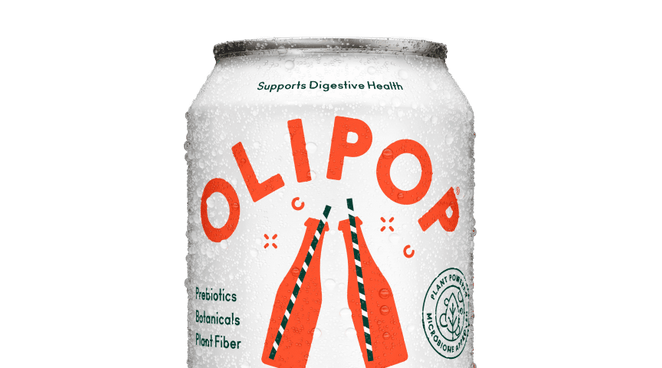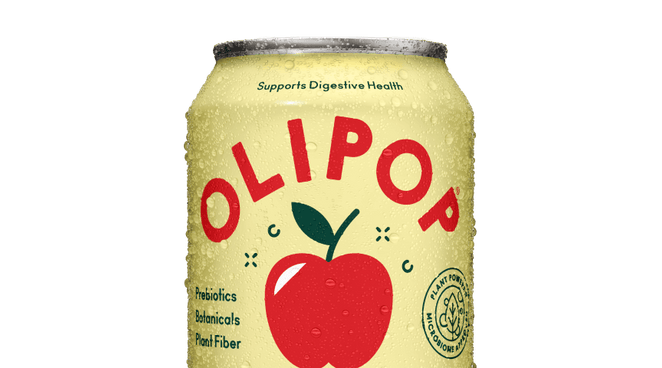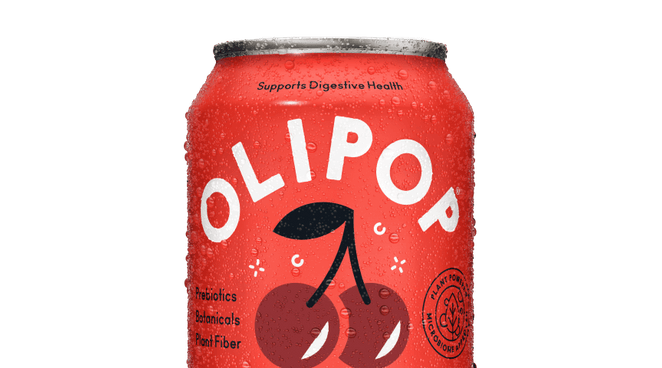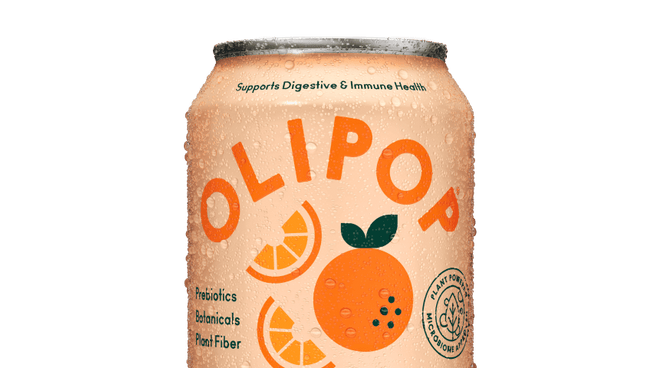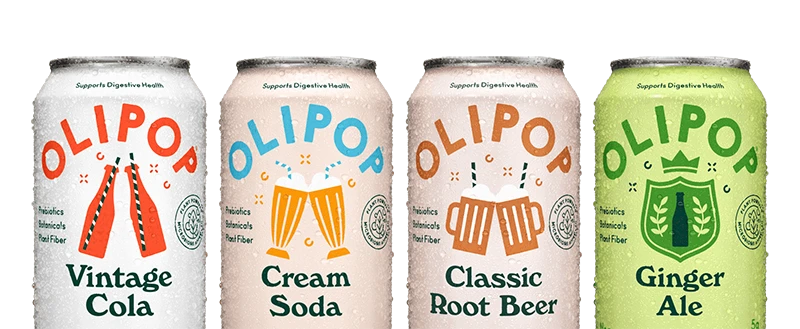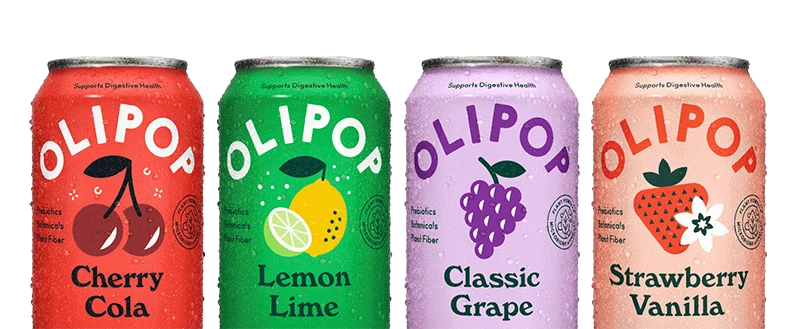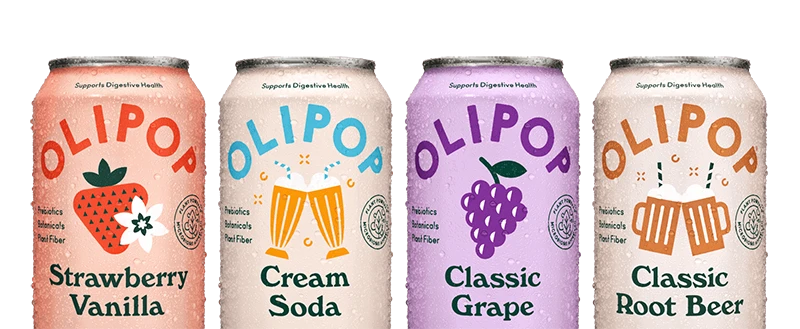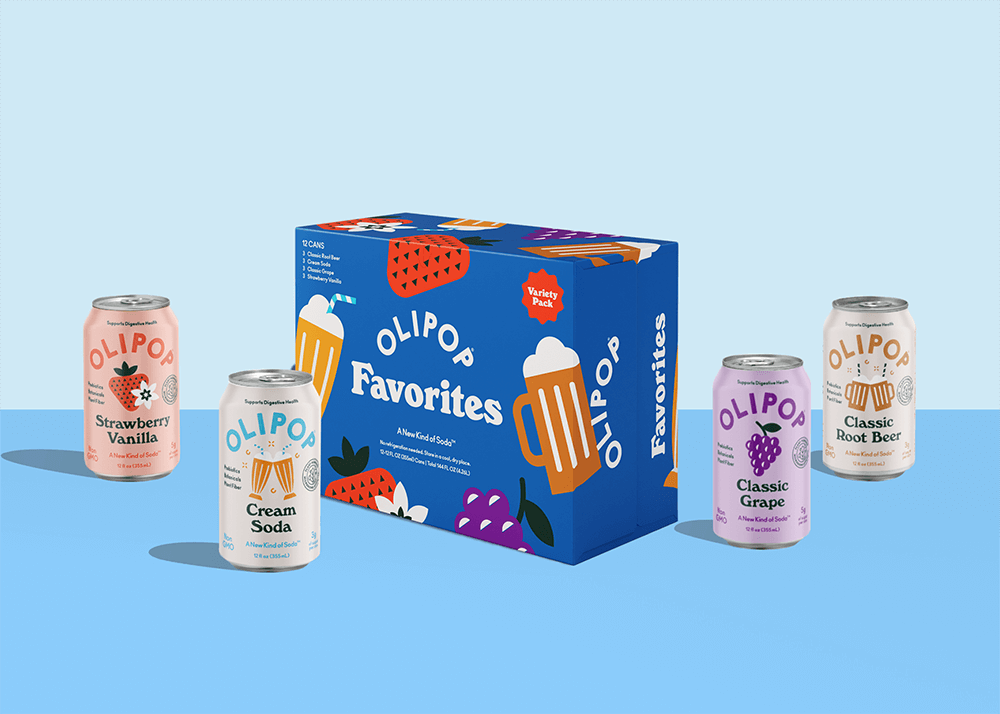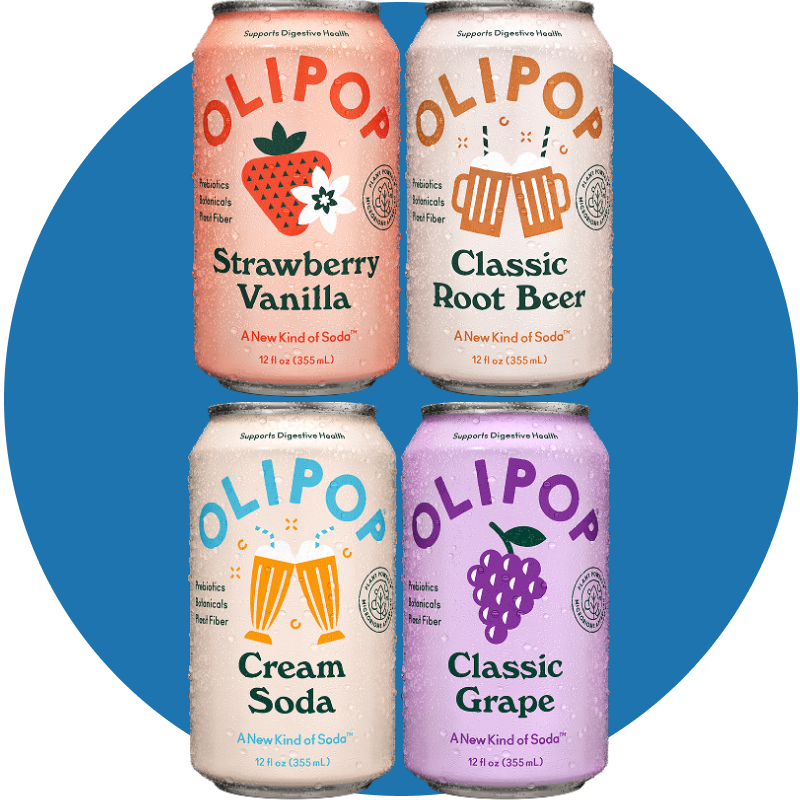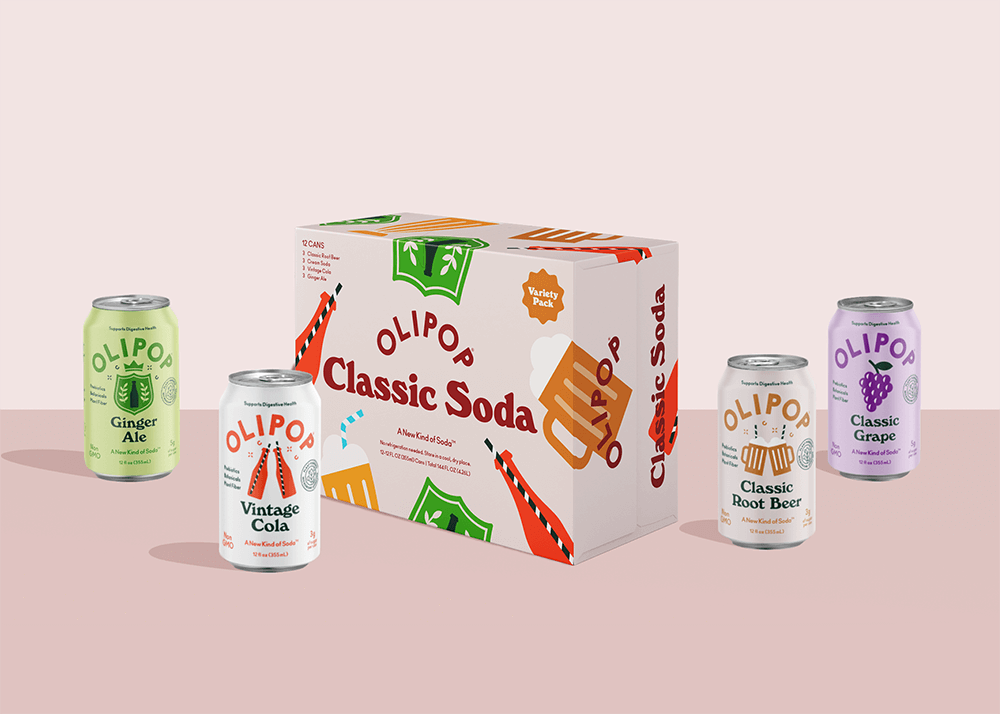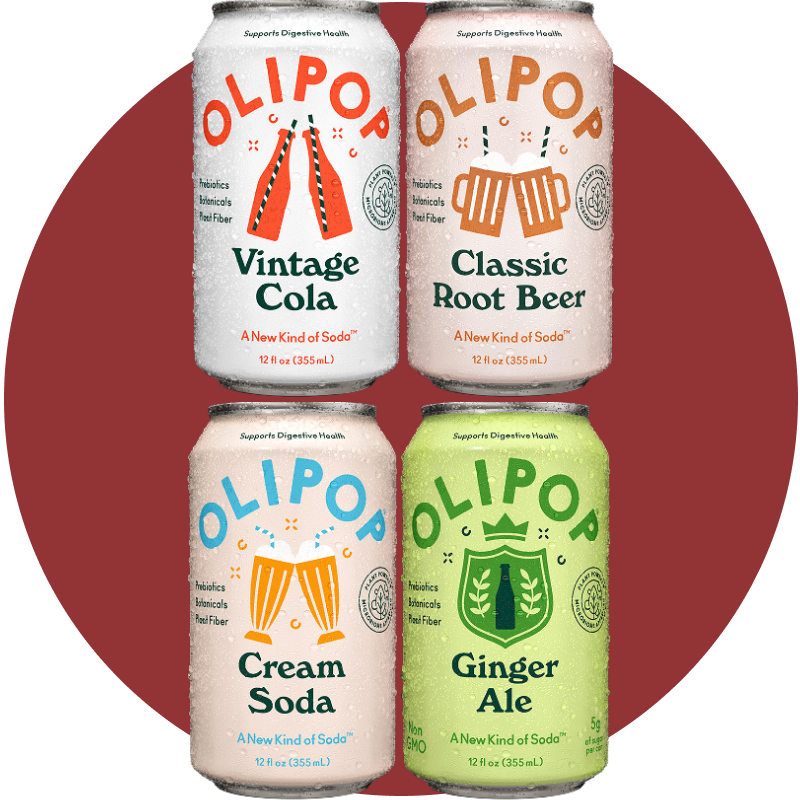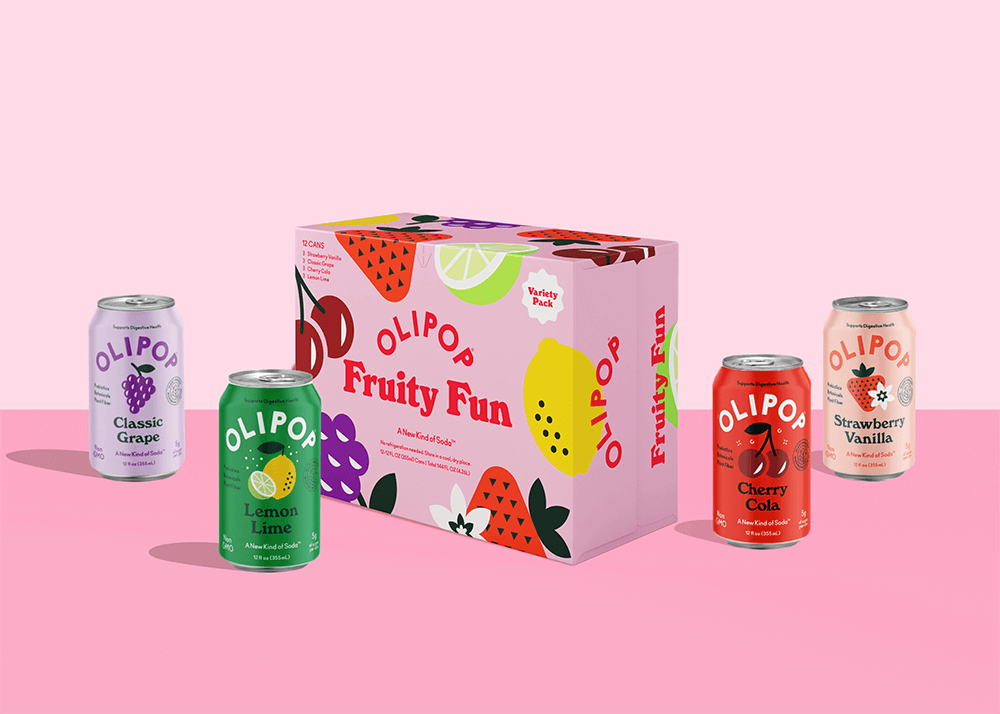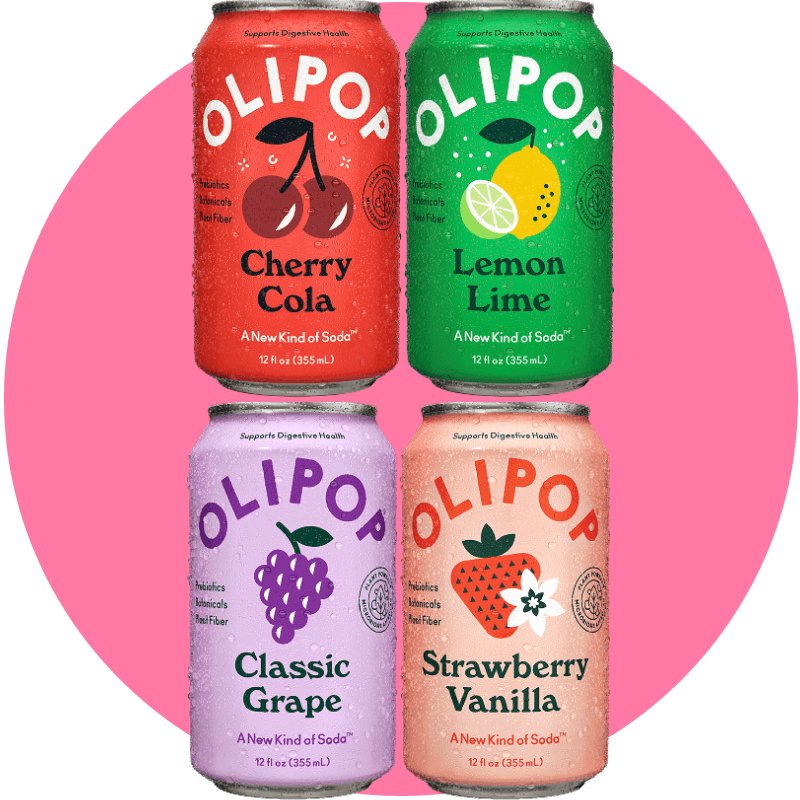Editor's Note: This article is reviewed by Lauren Manaker MS, RDN, LD, a registered dietitian and a paid contributor to OLIPOP. She specializes in digestive health and reviews OLIPOP content for scientific accuracy.
Unfortunately, some of us run into some challenges every once in a while after we chow down. Your stomach may blow up like a balloon or you may find yourself running to the bathroom more frequently than your buddies do. It could be that you ate something wrong or that you took some other missteps. But your gut health and digestion is also influenced by the numerous lifestyle choices that you make on a daily basis.
Whether you have digestion questions or you want to make sure your digestive system runs smoothly for years to come, here are five proactive steps you can take to support your gut and digestive health.
Why Is Gut Health So Important?
Nobody wants to deal with discomfort. Having “good” digestive health can mean that everything is functioning in that department, leaving you feeling great.
However, gut health goes beyond having a happy tummy. Your digestive system breaks down food and absorbs nutrients for the body to use. If your digestive system is a bit “off”, you can run the risk of experiencing some nutrient deficiencies, even if you have a well-balanced diet.
Your digestive system also has the ability to get rid of the waste that your body doesn’t need. Having an unhealthy digestive system could mean that you could get backed up and have challenges having a bowel movement. This could lead to some very uncomfortable side effects.
Additionally, your gut is the home to a wide variety of live organisms that support your health. Maintaining a healthy gut means keeping a diverse and healthy microbiome, which, in turn, can help support your immune, digestive, mental, and overall health.
Gut Health & The Brain-Gut Connection
Your gut and your brain are connected—both physically and chemically—in something referred to as the gut-brain axis. This is an entire network that connects the brain to the gut via nerves and chemicals and helps to support your brain health. Simply put, the emotional and cognitive centers of the brain are linked to intestinal functions.
Data shows the importance of gut microbiota in influencing these interactions, especially when your microbiota is diverse and thriving.1 In a nutshell, by supporting your gut health, you're keeping your stomach feeling good.
5 Tips to Support Your Gut & Digestive Health
So, how in the world do you support your digestive health? Some factors that can negatively affect your digestive health are outside of your control, like genetics and environment.
However, there are certain steps you can take that can help get your gut health in tip-top shape. Here are 5 simple gut health tips you can include in your overall healthy lifestyle that can help support better digestive health:
1. Eat a Diet High in Fiber
One of the absolute best ways you can support your gut health is by eating a high-fiber diet. Fiber supports healthy bowel movements, so eating a high-fiber diet can help your digestive health by moving things along. Additionally, certain fiber options are prebiotic fibers or indigestible fiber that “feeds” live and beneficial bacteria in the gut.
To include fiber-rich foods in your diet, focus on the following food choices:
- Beans and legumes
- Fruit and vegetables
- Whole grain bread
It may feel daunting to increase your fiber intake if you haven’t been eating a lot of it, but there’s no need to feel overwhelmed. You can start by including fiber supplements or beverages that contain fiber-rich ingredients, like OLIPOP (which has 6-9 grams of fiber in every can!), into your diet. Then, you can start building up by eating more fiber-rich foods.
2. Add Probiotics to Your Diet
Probiotics are living organisms that benefit your health. They do this by interacting with the existing beneficial bacteria that live in your gut. Studies show that consuming probiotics could help improve various aspects of your health, like supporting your gut.
One of the easiest ways to incorporate probiotics into your daily life is through your diet. Fermented foods, for instance, are some of the best natural sources of probiotics.
Some foods that naturally contain probiotics include:
- Yogurt
- Kimchi
- Sauerkraut
- Kefir
- Miso
To keep your probiotics healthy and thriving, make sure you are feeding them by taking in prebiotic fiber too. Jerusalem artichoke, chicory, and a slightly underripe banana are all sources of prebiotic fiber.
3. Exercise Regularly
Supporting your gut goes beyond what you eat. Getting the blood flowing and keeping your body moving can help support your gut health. In fact, one study showed that those participating in 30-60 minute sessions of cardiovascular exercise 3 times a week for 6 weeks can impact the gut microbiome in a positive way.5
Exercise can also help the intestines contract and pass waste—leading to healthy bowel movements. Considering all the other benefits of exercise, it's worth lacing up those sneakers and hitting the pavement—even if it’s just a walk around the block.
4. Limit Foods High in Fat
Eating a high-fat diet can strain your heart and may make maintaining a healthy weight difficult. Consuming a high-fat diet may also cause harm to your digestive health by reducing the number of good gut bacteria.6
But not all fat is bad for you! The key is to limit saturated and trans fats and focus on mono and polyunsaturated fats. Like the healthy fats in avocados! In fact, in one study, results show that eating an avocado every day resulted in improved gut diversity vs. people who didn’t eat this fruit every day.7
5. Stay Hydrated
You lose water every day simply by living life. And if you don’t replenish the fluids that you lose, your digestive health can suffer. Simply put, if you don’t have enough fluid in your body, your bowel movements can have a hard time getting flushed out and passing through.
You can also feel nauseated or experience bloating if you don’t have enough fluid in your body. You should aim for around a half-gallon of water every day. But this estimate could change based on how much you sweat, how much you weigh, whether you are breastfeeding, and many other factors.
Pro tip: Don’t lean on hydration options that contain alcohol, large amounts of caffeine, or excessive sugar. These can work against your hydration goals!
Gut Health & OLIPOP
Supporting your digestive health takes a little know-how and effort. But once you get in the habit of taking the right steps, keeping your gut happy can be a breeze.
Along with choosing the right foods, the drinks you include can help support your digestive health too. OLIPOP includes prebiotic fibers that help support a healthy microbiome.
Popping open and enjoying a can of OLIPOP is one extremely simple (and delicious) way to support your gut health. Especially if you are living a healthy lifestyle and you have a hard time getting the right amount and type of fiber in your diet.
Sources
- Carabotti M, Scirocco A, Maselli MA, Severi C. “The gut-brain axis: interactions between enteric microbiota, central and enteric nervous systems.” Ann Gastroenterol. Vol. 28, No. 2, pp 203-209. 2015.
- Ríos-Covián, David et al. “Intestinal Short Chain Fatty Acids and their Link with Diet and Human Health.” Frontiers in microbiology vol. 7 185. 17 Feb. 2016, doi:10.3389/fmicb.2016.00185
- Pinto-Sanchez, Maria Ines et al. “Probiotic Bifidobacterium longum NCC3001 Reduces Depression Scores and Alters Brain Activity: A Pilot Study in Patients With Irritable Bowel Syndrome.” Gastroenterology vol. 153,2 (2017): 448-459.e8. doi:10.1053/j.gastro.2017.05.003
- Carding, Simon et al. “Dysbiosis of the gut microbiota in disease.” Microbial ecology in health and disease vol. 26 26191. 2 Feb. 2015, doi:10.3402/mehd.v26.26191
- Allen, J M et al. “Exercise training-induced modification of the gut microbiota persists after microbiota colonization and attenuates the response to chemically-induced colitis in gnotobiotic mice.” Gut microbes vol. 9,2 (2018): 115-130. doi:10.1080/19490976.2017.1372077
- Wan, Yi et al. “Effects of dietary fat on gut microbiota and faecal metabolites, and their relationship with cardiometabolic risk factors: a 6-month randomised controlled-feeding trial.” Gut vol. 68,8 (2019): 1417-1429. doi:10.1136/gutjnl-2018-317609
- Thompson, Sharon V et al. “Avocado Consumption Alters Gastrointestinal Bacteria Abundance and Microbial Metabolite Concentrations among Adults with Overweight or Obesity: A Randomized Controlled Trial.” The Journal of nutrition vol. 151,4 (2021): 753-762. doi:10.1093/jn/nxaa219
- Your gut health and digestion are influenced by the numerous lifestyle choices that you make on a daily basis.
- Some of the best ways to take care of your gut are to eat a high-fiber diet, enjoy probiotics, exercise regularly, limit foods high in fat, and stay hydrated.
- OLIPOP includes prebiotic fibers that help support a healthy microbiome.



